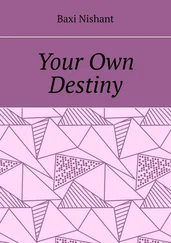Роберт Бюттнер - Orphan's Destiny
Здесь есть возможность читать онлайн «Роберт Бюттнер - Orphan's Destiny» весь текст электронной книги совершенно бесплатно (целиком полную версию без сокращений). В некоторых случаях можно слушать аудио, скачать через торрент в формате fb2 и присутствует краткое содержание. Жанр: Боевая фантастика, на английском языке. Описание произведения, (предисловие) а так же отзывы посетителей доступны на портале библиотеки ЛибКат.
- Название:Orphan's Destiny
- Автор:
- Жанр:
- Год:неизвестен
- ISBN:нет данных
- Рейтинг книги:3 / 5. Голосов: 1
-
Избранное:Добавить в избранное
- Отзывы:
-
Ваша оценка:
- 60
- 1
- 2
- 3
- 4
- 5
Orphan's Destiny: краткое содержание, описание и аннотация
Предлагаем к чтению аннотацию, описание, краткое содержание или предисловие (зависит от того, что написал сам автор книги «Orphan's Destiny»). Если вы не нашли необходимую информацию о книге — напишите в комментариях, мы постараемся отыскать её.
Orphan's Destiny — читать онлайн бесплатно полную книгу (весь текст) целиком
Ниже представлен текст книги, разбитый по страницам. Система сохранения места последней прочитанной страницы, позволяет с удобством читать онлайн бесплатно книгу «Orphan's Destiny», без необходимости каждый раз заново искать на чём Вы остановились. Поставьте закладку, и сможете в любой момент перейти на страницу, на которой закончили чтение.
Интервал:
Закладка:
Today, except for Howard, they sat cross-legged in a circle, reclining on their packs and playing cards. Brumby sat on a neoplast crate packed with Howard’s precious Slug Football.
Howard claimed he hadn’t heard me tell him to leave it, but he probably would have brought it anyway. Howard argued it was the single most extraordinary artifact recovered in world history. But the reason I let him keep his Slug-metal stray puppy was that it hadn’t shown any propensity to bite anybody.
The V-Star gathered speed and dwindled to a speck. It would rendezvous with Excalibur one hundred miles above us, then the last V-Star, refueled and refreshed, would scream down to pluck us from this most foreign place. Ganymede once again would host no living things.
In the sudden silence, Howard adjusted old-fashioned glasses on his wrinkled face, read his wrist ’puter, then caught me looking back, over my shoulder, at the low crags behind us. “We only have three hours. You’re not going back over the rim?”
The landing strip and takeoff apron were built across solid rock and water-ice, on a plain beyond the rim of the crater where GEF had arrived on Ganymede. That flat crater floor had proven to be volcanic dust deep enough to swallow dropships whole. Hundreds of soldiers got buried alive without the chance to fire a shot. In the days that followed, thousands more fell in combat.
Landing Zone Alpha, beyond the jagged hills behind Howard and me, was a graveyard. Hallowed and consecrated by unanimous act of the General Assembly of the United Nations and by the blood of nine thousand orphans. My only family.
I nodded at Howard. “I can make it over the rim and back in an hour.”
Howard had known I couldn’t leave this place without saying good-bye.
I Ganymede-galloped toward the crater rim, covering twenty paces with each low-gravity stride.
Howard shouted after me, “It’s a long wait ’til the next bus!”
I scrambled to the crater-rim crest in fifteen minutes and paused to let my heart slow down. Howard’s warning was sound advice, but even Space Force blue-suit weenies would hardly leave behind the stud-duck acting commanding general.
I dialed up my oxygen generator. Ganymede’s artificial, Slug-generated atmosphere had grown to four percent oxygen. But Earth-normal was over twenty percent. And this atmosphere was still as thin as the air at Everest’s summit.
Beyond the opposite crater rim, through the surface dust already rising from late-afternoon winds, the sun flickered like a distant porch light, fifteen degrees above the jagged horizon. I looked out across the crater floor to the impact-rebound structure at its center. The peak rose two thousand feet, like a medieval castle. It had been our fortress when Slugs and GIs had battled to control its parapets.
I picked my way, still puffing, across rock fields and down to the crater floor.
Ganymede had been a terrible place to fight a war. It was a more terrible place to bury the woman I loved.
I slipped and slid the last hundred vertical feet, then caught my breath again. Beneath my boots began a six-mile-long, eight-foot-wide causeway. Jury-rigged from prefabricated fiberglass shelter panels, it bridged the volcanic-dust sea.
The dust plain remained flat and featureless. If a tombstone rose here for each Slug warrior that had died and sunk beneath the dust, LZ Alpha would have made Arlington Cemetery look as empty as a village churchyard. The Slugs had charged us in waves, fifty thousand at a time. A man would sink in the dust as though into quicksand, but the Slug warriors glided across it like flat pebbles across pond water. Until we killed them. Then they sank like stones.
And kill them we had. At first, impersonally with precision-guided munitions. Then with rifles. Then with our bayonets. Then, finally, with our rifles again, swung stock-first like clubs until they shattered.
Our own dead now clustered near and upon the distant central peak, where the dropships crash-landed.
I checked my ’puter while I paused for a blow, then turned back and scanned the sky, perpetually twilight under one-thirtieth of Earth’s sunlight. It was still hours before the upship would even arrive.
I should just have stood still a moment, remembered them all, then turned back. Instead, I bounded onto the causeway.
I paused halfway to the mountain at a makeshift gravestone, constructed from torso shells of Eternad body armor, lashed to the causeway’s edge three miles distant from the central peak. Eternad armor stops assault-rifle rounds, but it weighs no more than cardboard, so the shells twitched in the rising wind. A plaque hammered from duralumin ammunition boxes and riveted to a chestplate read, “Two hundred feet beneath this monument rest four hundred men and women of the Combat Engineer Battalion, Ganymede Expeditionary Force, and the crew of United Nations Space Force Assault Ship Two. Killed in Action Third April, 2040.”
With the nearest living soldier ten miles away I allowed myself to draw a breath and blink back tears. They died. I lived. Why me?
“Action” in the gung-ho sense hadn’t even killed them. Simple human error had. Intel hadn’t dropped probes on the LZ to preserve surprise — they thought. The flat lava plain that Earth’s best minds believed they recognized from millions of miles away had proven to be volcanic dust as deep as the sea. Those kids, most older than I was, died as unaware of their fate as us grunts in the follow-on dropships had been.
Someone wrote that war is an orphanage and the soldiers with whom you fight become your only family. The GEF troop-selection process, picking only from among those who had lost entire families to the Slugs, meant we were literal orphans, as well.
The Battle of Ganymede had orphaned me for the second time.
I shuffled the rest of the way to the mountain’s base, more from respect for the fallen than from fear of falling.
I had barely met most of them. I ached not for lifetimes unlived but for anecdotes unfinished, jokes untold.
Ten minutes later I drew alongside the carcass of UNSF Assault Ship One, its skin tiles charred to charcoal by atmospheric friction. The ship’s wedge shape remained intact, though plowed into knee-deep dust.
I never knew the copilot. I would never again know anyone like the pilot.
Priscilla Olivia Hart had stood barely five feet tall even when she swaggered. And the self-proclaimed world’s best pilot always swaggered.
So the stones beneath which she lay made a grave as small as a child’s, compared to the sea of others. We had all come in here as children. Sometimes it seemed those who never had to grow up were the lucky ones.
I tugged off a mitten and touched the stones, so cold they burned my flesh. But I kept my hand there. Once I drew my hand away from her, away from this place, away from these people, I would be alone again. Being alone is the worst part of being an orphan. “Why, Pooh? Why you? Why me?”
I reached inside my armor’s yoke, unpinned my collar brass, and laid the stars across her grave. I needed to leave something of myself, something so she wouldn’t be alone. I couldn’t leave the ring because I hadn’t kept it. The ring she refused from me because my job was too risky and I would widow her when I did something noble and stupid and died.
I leaned against her grave and let myself weep.
When I looked up, Sol’s pale dot hung just above the crater rim. I read my ’puter as I tugged my mitten over numb fingers. Had I really stood here that long?
It only then occurred to me that a Space Force pilot would be more concerned about protecting his ship and crew by staying in his launch window than about whether he left one AWOL dirt-grubber behind, regardless of that grubber’s acting rank. Had I really been stupid enough to think the last ship would wait for me? At midday, minutes meant little. But Ganymede’s sunset brings artificial atmosphere contraction and hurricane-plus wind.
Читать дальшеИнтервал:
Закладка:
Похожие книги на «Orphan's Destiny»
Представляем Вашему вниманию похожие книги на «Orphan's Destiny» списком для выбора. Мы отобрали схожую по названию и смыслу литературу в надежде предоставить читателям больше вариантов отыскать новые, интересные, ещё непрочитанные произведения.
Обсуждение, отзывы о книге «Orphan's Destiny» и просто собственные мнения читателей. Оставьте ваши комментарии, напишите, что Вы думаете о произведении, его смысле или главных героях. Укажите что конкретно понравилось, а что нет, и почему Вы так считаете.

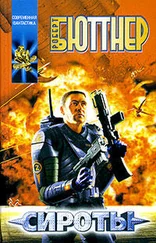

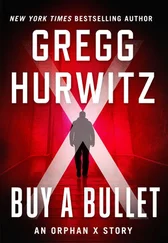
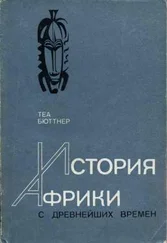
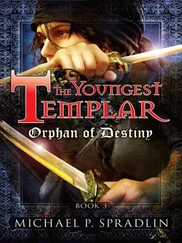
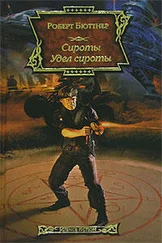
![Дэн Бюттнер - Где живет счастье [Правила жизни самых счастливых людей планеты] [litres]](/books/395574/den-byuttner-gde-zhivet-schaste-pravila-zhizni-samyh-thumb.webp)



